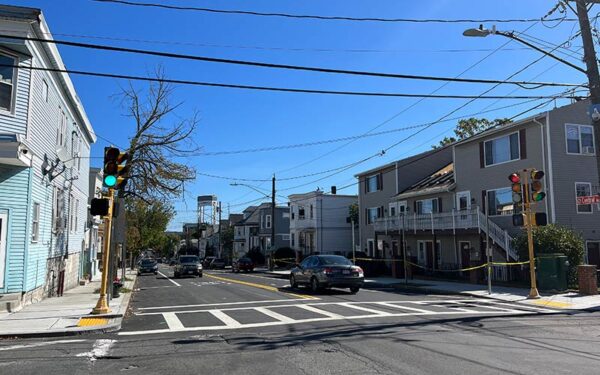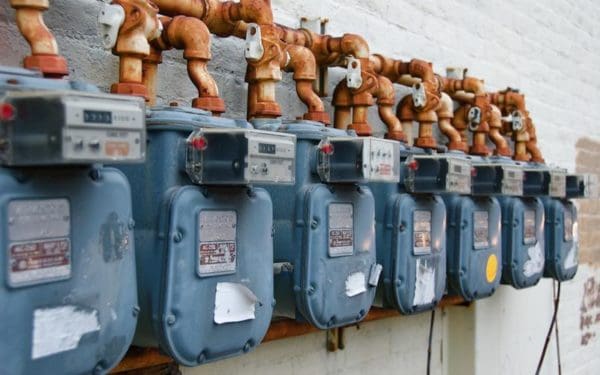Late in the afternoon on Friday, January 13, just before the start of the long MLK holiday weekend, National Grid quietly filed a letter with the Rhode Island Public Utilities Commission (PUC) asking the PUC to close Docket # 4627. This is the Docket that would have allowed National Grid to contract for a portion of the new “Access Northeast” pipeline being proposed by Algonquin Gas.
This was a huge victory for CLF and for the environment.
Significantly, National Grid’s filing with the PUC conceded that the Docket had to be closed for precisely the reasons that had previously been cited by CLF in its two motions to close the PUC Docket – on August 22, 2016 and November 28, 2016.
How We Got Here
The Access Northeast gas pipeline proposal was enormous, and in order to make it economically viable, Algonquin proposed to sell portions of the new gas pipeline capacity to utilities in Massachusetts, Maine, New Hampshire, Connecticut, and Rhode Island. In response, CLF commenced litigations in the respective utilities commissions of Massachusetts, New Hampshire, Maine, and Rhode Island to oppose approval of the contracts that each of these states’ utilities wanted to enter into with Algonquin.
In all of these states, the various utilities proposed to pay for the controversial gas pipeline by assessing a charge on electricity customers – what’s been called a “pipeline tax” in the media. And, in all of these states, CLF made two separate arguments against the pipeline.
First, CLF argued that federal law prohibits paying for gas pipeline with a charge on electricity customers. That’s why this has never happened in the entire history of the United States.
Second, as a matter of public policy, New England does not need massive new fossil-fuel infrastructure. New England is rapidly phasing out dirty fossil fuel power plants and replacing them with clean renewable energy. Building massive, expensive, new gas pipeline infrastructure now would lock New England into a fossil fuel future until well after 2050 (long after the time by which scientists agree we must all ratchet down greenhouse gas emissions).
In the Massachusetts Department of Public Utilities (the Massachusetts analogue of the Rhode Island PUC), CLF initially lost its case. So, CLF appealed the DPU decision to the Massachusetts Supreme Judicial Court, where CLF won. The Supreme Judicial Court ruled that CLF was right, and local electricity utilities could not charge a fee to pay for a gas pipeline; Massachusetts would not be a part of Algonquin’s new pipeline.
The Other Dominoes Start to Fall
On October 6, 2016, the New Hampshire PUC ruled that New Hampshire utilities could not participate.
On October 26, 2016, Connecticut pulled out of the project.
The next month, in November 2016, CLF won the litigation in Maine.
In Rhode Island, CLF argued that – without the participation of the other states – the Rhode Island portion of the enormous project was not economically viable. National Grid argued strenuously that CLF was wrong, and heatedly told the PUC that the project could and would go ahead.
National Grid’s filing on January 13 was a belated concession that CLF had been right all along. It is illegal to pay for a new gas pipeline by a tax on electricity customers. And New England does not need huge new fossil fuel infrastructure in the face of the climate emergency.
Better late than never.
A Hard-Fought Victory for Our Environment and Our Climate
I’d like to add one more point. CLF’s victory against the Access Northeast pipeline was a result of the combined efforts of many CLF lawyers in several states over many months. Here in Rhode Island, my Rhode Island CLF colleague Max Greene and my Massachusetts CLF colleague Megan Herzog did a great job of briefing and arguing the case before the PUC. In Massachusetts, before David Ismay argued CLF’s appeal in the Supreme Judicial Court, David was prepared, in part, with a moot court involving CLF lawyers from Maine, Vermont, and Rhode Island. At the same time CLF was litigating against Access Northeast here in Rhode Island, we had parallel lawsuits going on in Massachusetts, Maine, and New Hampshire.
Kudos are due to Max and Megan for their fine lawyering here in Rhode Island. But, in a broader sense, this was a victory for CLF’s Clean Energy program writ large, and for the strategy developed by a team of CLF lawyers in several states to defeat a coordinated utility proposal in multiple states.
And, in a still broader sense, this was a major victory for the environment and our climate. At a time when the switch from carbon fuels to renewable energy is accelerating all over the country and all over the world, we defeated a huge new fossil-fuel infrastructure proposal that would have had a life span of well over 50 years.
This is why I am so proud to be a part of the CLF team.


